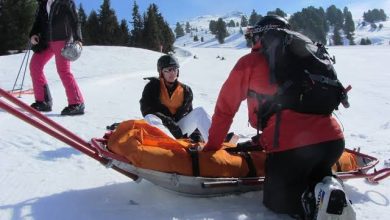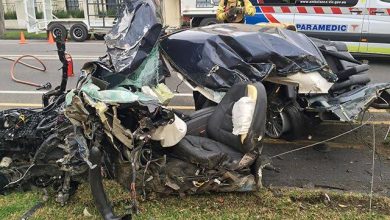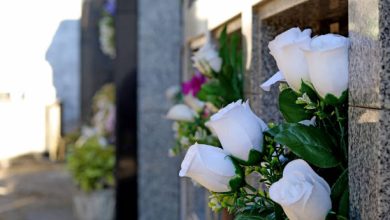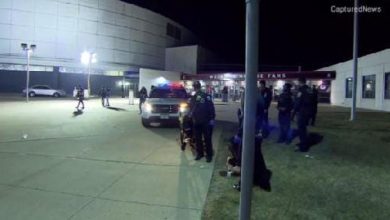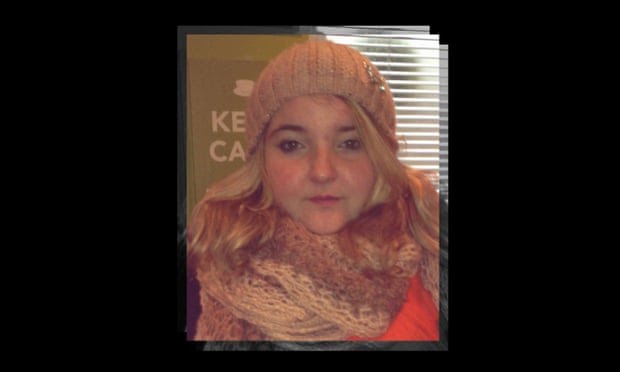
Dr Cas Shotter Weetman was steeling herself to face the man who killed her daughter. “All the fibres of your body are on high alert. The fight-or-flight instinct kicks in. Sometimes he looked at me for a good few seconds but I was determined to stare him out.”
In the dock at the Old Bailey, Mohamed Iidow appeared detached. He rarely flinched, even when grainy CCTV footage was shown to the jury as part of the prosecution case that his victim, Natalie Shotter, was orally raped by him “until she died” while she lay unconscious on a park bench. Some members of the jury could not hide their distress.
But every so often Iidow, 35, made eye contact with members of Natalie’s family who were sitting to the left of the dock. Cas, 63, a lead advanced cardiology practitioner who has worked for the NHS for 45 years and refers to Iidow as “the monster”, did not drop her gaze. Iidow was convicted of Natalie’s rape and manslaughter on 18 October, in a highly significant case that found oral rape as a cause of death. He had pleaded not guilty but chose not to give evidence in his own defence.
Natalie, 37, was found dead on a bench in Southall Park, west London, just before 6am on the morning of 17 July 2021. She was an NHS clinical admin worker who lived in Heston, a couple of miles from Southall, and a much-loved mother of three children – two teenage boys and a 21-month-old daughter. She adored them all and enjoyed a close relationship with other members of the family including her mother and her younger brother, Harry.
Man found guilty of rape and manslaughter of woman on London park bench
At the time of her death she was suffering from postnatal depression. She had given birth to her daughter during the pandemic and, like many others, struggled with the isolation. Because Cas was working on the NHS frontline during the pandemic, she was unable to visit her daughter and her new grandchild regularly for fear of infecting them with Covid.
Natalie was small in stature – about 5ft (1.52 metres) tall and weighing just 6½st (41kg). She had recently told the doctor that when she drank alcohol she would black out and fall into a deep sleep. She had not been on many nights out since the birth of her daughter, but on the evening of 16 July, she had arranged to go out with friends, while her partner and family members looked after the children.
Cas was in Yorkshire at the time, caring for her terminally ill father. She said she did not know that her daughter was in Southall that evening. Although it is not far from Heston, she did not think it was an area her daughter was familiar with. CCTV footage was shown to the court of someone playing drums on a street in Southall and Natalie dancing.
“If she heard music you couldn’t stop Nat from dancing,” says Cas. The footage showed Natalie looking well. After the dancing she was seen walking down the street and looking at her phone. A man who did not give evidence during the trial, but provided a statement, said he had met her that night and they sat together on a bench in Southall Park. It is thought that they took amyl nitrate “poppers”. He said she became unwell and lay down on the bench. At 11.56pm, he went to search for help after she appeared to become unconscious, and found two police officers outside the park. But they said they were busy dealing with something else and could not go and attend to an apparently drunk woman in the park. (The Metropolitan police says the officers “advised the individual to call police for additional support”.) The man returned to her briefly at 12.05am before leaving the park.
Cas feels certain that had the police, who were close to the park when Natalie became unconscious, responded to the request for help, her daughter would still be alive today. Meanwhile, criminal proceedings are ongoing against a different police officer accused of misconduct for allegedly possessing and sharing CCTV footage of Natalie’s and another woman’s case. The officer denies the charges.
According to the CCTV footage, at 12.16am, Iidow approached Natalie. He appeared to have been stalking her before he approached her as she lay unaware of him on the park bench. He orally raped her, moving her into different positions. He left her at 12.32am before returning briefly at 12.48, leaving again at 12.51 and driving away from the park. On his way home to his wife and children, he stopped off at a Shell garage to pick up some mouthwash and cat food.
Alison Morgan KC, prosecuting, told the jury during the trial: “[Natalie] was vulnerable because she found herself in a park late at night where the defendant was a man stalking the park looking for sexual services. She did not die of natural causes. She did not die because alcohol was consumed, she did not die because of a particular drug. She died because she was raped by the defendant again and again. He saw walking past her on three occasions that she was vulnerable. Natalie Shotter was deeply unconscious but alive when the defendant raped her.”


